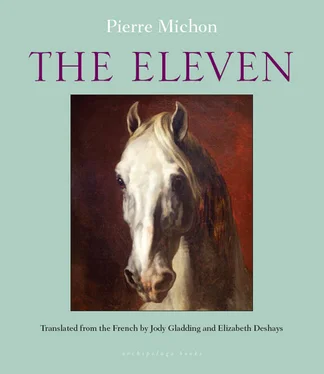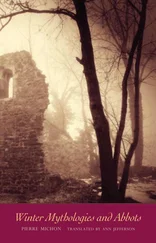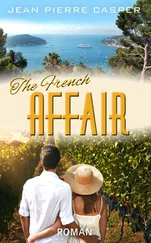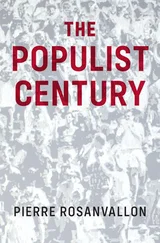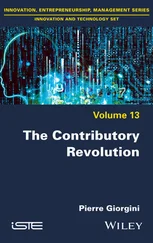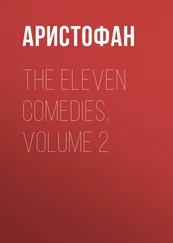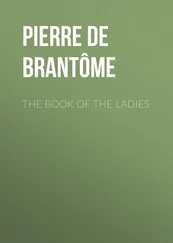In your mind go down into the mud, Sir. Can you feel it spurt between your toes? Because you do not have your wooden clogs for this work, you left them with the others in a heap on the canal bank, to shoe the herons, in case the herons should need shoes. If we assume that you even have clogs, which is an improbable conjecture, since where you are even clogs are a luxury, a possession. Imagine with all your heart the hope harbored by a life that consists of gathering mud into a basket, emptying that basket into a cart, and beginning over again day after day until dusk that same kind of work, and if you are lucky the prospect of black bread, leaden bread, and then leaden sleep to make it pass; and on Sunday, leaden drunkenness. Also the prospect of working over, in the dark months in the Limousin, something called a wife out of politeness, but that only evokes a woman after a complicated metaphorical procedure. Are you there? Are you up to your neck in ripe carp? Get to work. Collect the dead earth with the dead fish in it. Eat one if you like, they are for you, for the gulls and the crows. Eat it. Now, lift your head. See two steps above you the gold dress, and above the dress a gaze resting upon you. And under the gold dress, even more dazzling, see the naked body of the beautiful lady. Do you feel it in your breeches, that immediate emotion, divine, intense, unique? Imagine this, too: although a Limousin, you are twenty years old and beautiful as a god, and in your arms is the vigor that day after day lets you breathe in the ripe carp through clouds of mosquitoes and not die of it, as half of your kind have died, falling from ladders, suffocating in the mud, shaking with fever, any more than you died as a three-year-old child in the well, eight years old under the cart, fifteen years old by the knife, as your ten brothers and sisters died. Feel your vigor, your beauty, your luck you might say. Because this is what is happening: the beautiful lady long without a man is looking at you, in her look the avowal that she feels in her skirts the emotion you feel in your breeches. But suddenly she is looking elsewhere and will not look at you again, because the law is iron and the universal Father is watching, and because God is a dog. And if God is a dog, perhaps you have license to be a dog yourself in his image, to climb up the bank, to toss to the ground and take by force and mate without fuss as dogs do. And the child who is observing you (but you do not have time to notice that), the child who has seen everything, in short, wishes passionately that you would climb up the bank and take advantage of his mother right there under his eyes. And that is what he fears most in the world.
Are you there? Can you really feel the too much of desire and the too little of justice? Are you wearing next to your skin the double mask of love? Are you Sade and Jean-Jacques Rousseau? Good, we can come back to the painting. We can turn once again to The Eleven .
Eleven Limousins, are they not? Eleven Limousins, thickset. Eleven thickset barons risen and watching your mother, young and naked, enter the low hall of the Marquis de Sade’s castle. Eleven little blond boys severing heads, that is, under their mothers’ skirts, slicing away.
The painting was commissioned in Nivôse — and not in Ventôse, as was said, as continues to be said, because History arranges dates in its own way; because the afterwards is a great lord and has all the rights, His Lordship the Afterwards; because Ventôse was the darkest month in that winter of year II when the factions fell, when the barren Decrees of Ventôse were drawn up and proclaimed, terrible to the suspects, full of compassionate zeal for the unfortunate , making the first despair, giving the second the phantom hope of food and shelter, setting the tone for the Great Terror; because it was also the coldest month, because lurking in the great cold and feeling it at heart Robespierre brought out the knife to shear off right and left, the moderates and the extremists, the beautiful knife named Saint-Just; because the wind in Ventôse resounds more theatrically than the snow lying softly in Nivôse; because there is no snow in the painting, but something like the effect of great wind, although there is no wind either; above all because, as you know, since the Empire, in a bold, romantic confusion, this definitive painting has sometimes been called Le Décret de Ventôse . No, it was earlier. It was commissioned two months before Ventôse, in Nivôse in year II, on the fifteenth or sixteenth of Nivôse, which is about January 5, 1794, erstwhile the Epiphany, Three Kings Day.
It was the night of the fifteenth. It may have been eleven o’clock. Corentin was sleeping. Someone knocked loudly on the door, on Rue des Haudriettes — he was still living in that small mansion, the main building of which opened to the street and which he had bought with the large commission from the Marquis de Marigny for the Louveciennes château, twenty-five thousand pounds from the king, almost twenty years earlier. The little girl (he no longer had servants living in), the little girl heard them before he did and ran frightened to his bedside. He went over to the window alone, opened it, and saw the three Sans Culottes below, peaceable, respectful in so far as was possible for Sans Culottes, who told him that he was wanted à la section at that very moment. From his extended arm, one of them raised a large square guardroom lantern. Their voices and the raised faces aglow in its full light were familiar to him. He signaled for the little girl to climb very quietly to the safety of the garret. He got dressed and went down.
There was a biting frost, the bright stars glistened in the dark night. Surely it was not the great off-white cloak that he wore, but the one that appears in legend, the greatcoat the color of the smoke of hell , impossible to tell if it is black, red, charcoal gray, or chocolate brown, and which is repeatedly mentioned in memoirs of those times. The Sans Culottes, who were shivering in their rags — they were already walking quickly, all four of them, through the empty streets — told him it was Léonard Bourdon who wanted to see him. He knew Bourdon, who held the neighboring section of Gravilliers since Jacques Roux had been imprisoned. He did not like him very much. They walked a short distance up Rue du Temple, they turned left: they were indeed headed toward the erstwhile Saint-Nicolas-des-Champs church, now the Nicolas church, headquarters of the Gravilliers section.
They had arrived. They were already climbing the little steps.
The doors were wide open.
Under the porch they skirted around the bells, which had been taken down but not yet carried off to the foundry, the monstrous pendants of the eternal Father , silenced. The nave was icy and stripped of all objects of worship — Bourdon, who was very busy with defanaticization and regeneration , had gotten rid of everything that could not be melted down or reused. Quickly they walked the length of the whole darkened building to the apse. Beside the aisle to the left the lantern revealed an improvised stable, with straw bedding and an indistinct rack, where the shadows of two or three horses were stirring. Close to the stable along the left wall, they opened the door of the sacristy, heated and illuminated by a good fire in the hearth: the section had withdrawn there because of the cold. The guardroom lantern was placed, still lit, on a large table. There was another Sans Culotte in the room who had taken off his wooden clogs and was warming his bare feet by the fire. Corentin knew him as well, it was Ducroquet, the clerk for the wine merchant whose store was at the corner of Rue des Haudriettes and Rue des Blancs-Manteaux. On Corentin’s arrival he rose (he seemed good-natured, and he was; a little mad, and he was), he said that Bourdon and the others would not be long; and with a knowing look and a deferential tone of familiarity in which a hint of mockery heightened the deference, he nodded that they were up there . Corentin understood that they were at the Jacobins, in the great sound box of the erstwhile Dominicans’ chapter room between here and the Seine, the great oratory vault filled, for the last four years, with the roar of emotion and opinion, the best and the worst, the stone drum from which the stamping and cheering was heard each night from one end to the other of Rue Saint-Honoré. He looked at Ducroquet’s bare feet on the stone. He was asked to take a seat and wait. The other four sat down to play cards, paying no more attention to him.
Читать дальше
